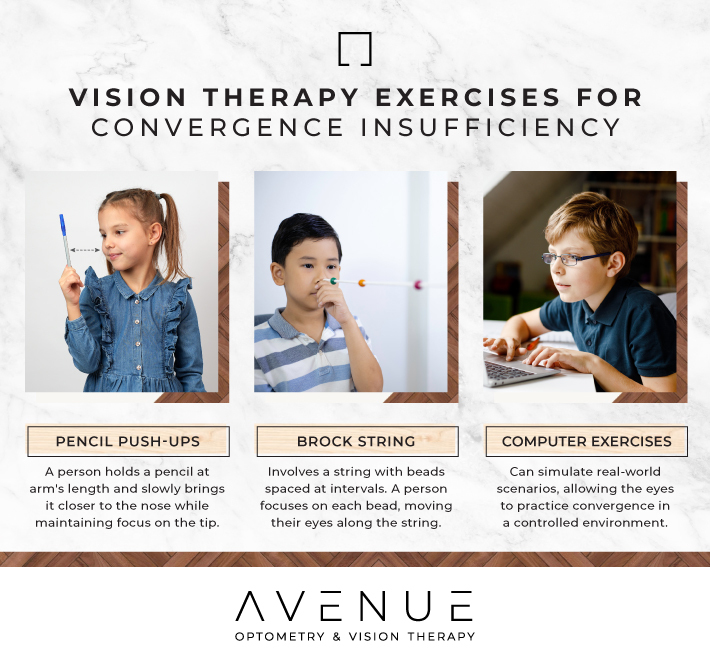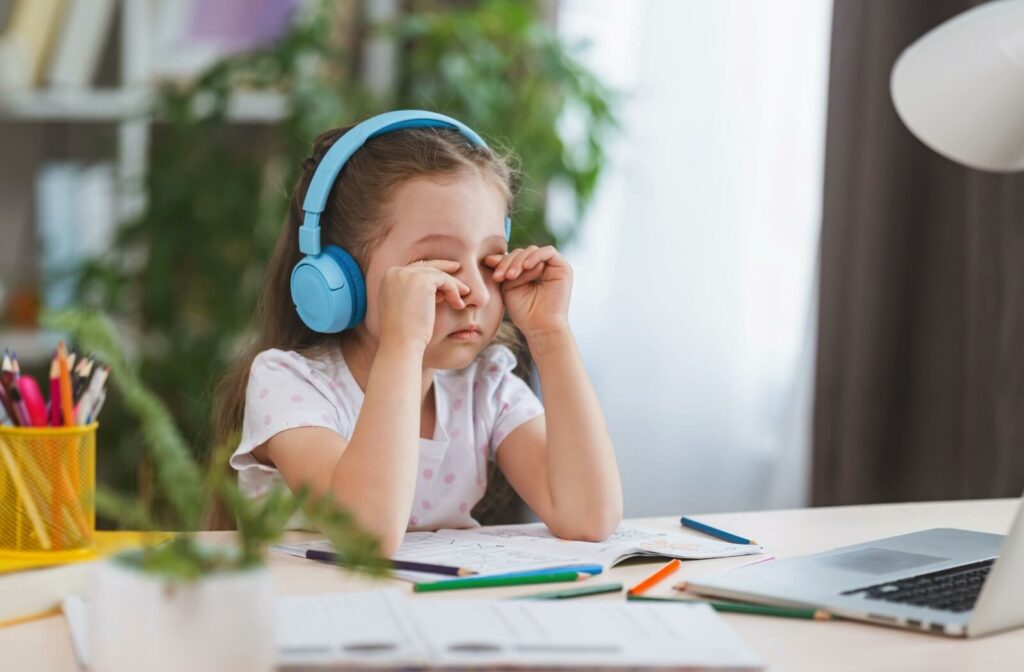In a world where screen time is at an all-time high, eye health has become more important than ever. Among the various vision challenges people face today, convergence insufficiency is a common yet often misunderstood condition.
This condition occurs when the eyes struggle to work together while focusing on nearby objects, such as when reading or using a computer. Those affected might experience tired eyes, headaches, and blurred or jumping text.
Fortunately, vision therapy has shown promising results in improving convergence insufficiency. However, the effectiveness of therapy can vary from person to person, so it’s important to seek professional guidance.
What Causes Convergence Insufficiency?
While it is not always clear why some individuals develop convergence insufficiency, certain risk factors and underlying issues have been identified.
In some cases, convergence insufficiency may have a genetic component, meaning it can run in families. Other times, it may be related to developmental issues, where the visual system did not develop properly during childhood. This can result in difficulties with eye coordination.
The increasing reliance on digital devices has also contributed to the rise in convergence insufficiency cases. Prolonged screen time can strain the eyes and exacerbate existing visual challenges. Therefore, it is important for people, especially children, to take regular breaks and practice good eye care habits.
Signs Your Child May Have Convergence Insufficiency
Recognizing the signs of convergence insufficiency in children can help with early intervention. Children may not always be able to articulate their visual discomfort, so parents and educators need to be aware of potential symptoms.
Common signs that a child may have convergence insufficiency include:
- Frequent complaints of headaches or eye strain, especially after reading or using a computer
- Double vision
- Difficulty concentrating on tasks
- Avoiding activities that require close-up focus
- Poor reading comprehension
- Frequently losing their place while reading
Diagnosing convergence insufficiency usually involves a comprehensive eye examination conducted by an eye doctor. This exam assesses eye alignment, focusing abilities, and overall visual coordination.
Vision Therapy: What It Is & How It Works
Vision therapy is a customized program to improve the function and coordination of the eyes and brain. Unlike glasses or contact lenses that correct vision, vision therapy aims to address underlying visual issues by training the visual system. It’s like physical therapy but for your eyes.
Who Can Benefit from Vision Therapy?
Often recommended for children and adults with specific visual challenges, vision therapy can help with conditions like amblyopia (lazy eye), strabismus (crossed eyes), and convergence insufficiency. By engaging in targeted exercises, patients work to develop skills such as eye tracking, focusing, and teaming for clear and comfortable vision.

Vision Therapy for Convergence Insufficiency
By engaging in exercises that train the eyes to work harmoniously, patients can improve eye coordination, which can reduce or eliminate symptoms. These exercises often include activities that require focusing on objects at varying distances, helping the eyes learn to adjust and work as a team.

Exercises for Convergence Insufficiency
- Pencil push-ups: One common exercise is called “pencil push-ups.” In this activity, the patient holds a pencil at arm’s length and slowly brings it closer to the nose while maintaining focus on the tip. This exercise helps in strengthening the eye muscles and improving convergence.
- Brock string: Another exercise is known as the “Brock String,” which involves a string with several beads spaced at intervals. The patient focuses on each bead, moving their eyes along the string. This helps with depth perception and eye coordination.
- Computer-based exercises: These programs use virtual reality or interactive games to provide engaging exercises that encourage the eyes to work together effectively. These exercises often simulate real-world scenarios, allowing the eyes to practice convergence in a controlled environment.
Virtual Reality & Vision Therapy
In the ever-evolving world of eye care, virtual reality (VR) is emerging as an exciting new treatment for convergence insufficiency. This innovative technology can create immersive environments that offer unique opportunities for the eyes to train and improve their ability to work together.
Early studies suggest that these immersive experiences can significantly enhance eye coordination and reduce symptoms over time. For instance, VR programs designed to practice focusing and tracking can help retrain the brain and eyes to work in harmony, offering a promising alternative to conventional exercises.
As research progresses, the hope is that VR will become a standard tool for managing convergence insufficiency, offering a blend of fun and function that could transform how we approach eye health.
Explore the Benefits of Vision Therapy
Vision therapy can offer numerous benefits for people with convergence insufficiency. Beyond alleviating symptoms, it provides a holistic approach to improving visual skills and overall well-being.
If you or a loved one struggles with convergence insufficiency, consider exploring vision therapy at Avenue Optometry & Vision Therapy. Our team is dedicated to helping you and your family achieve and maintain healthy vision. Contact us today to book an appointment and learn more about our personalized vision therapy programs.




